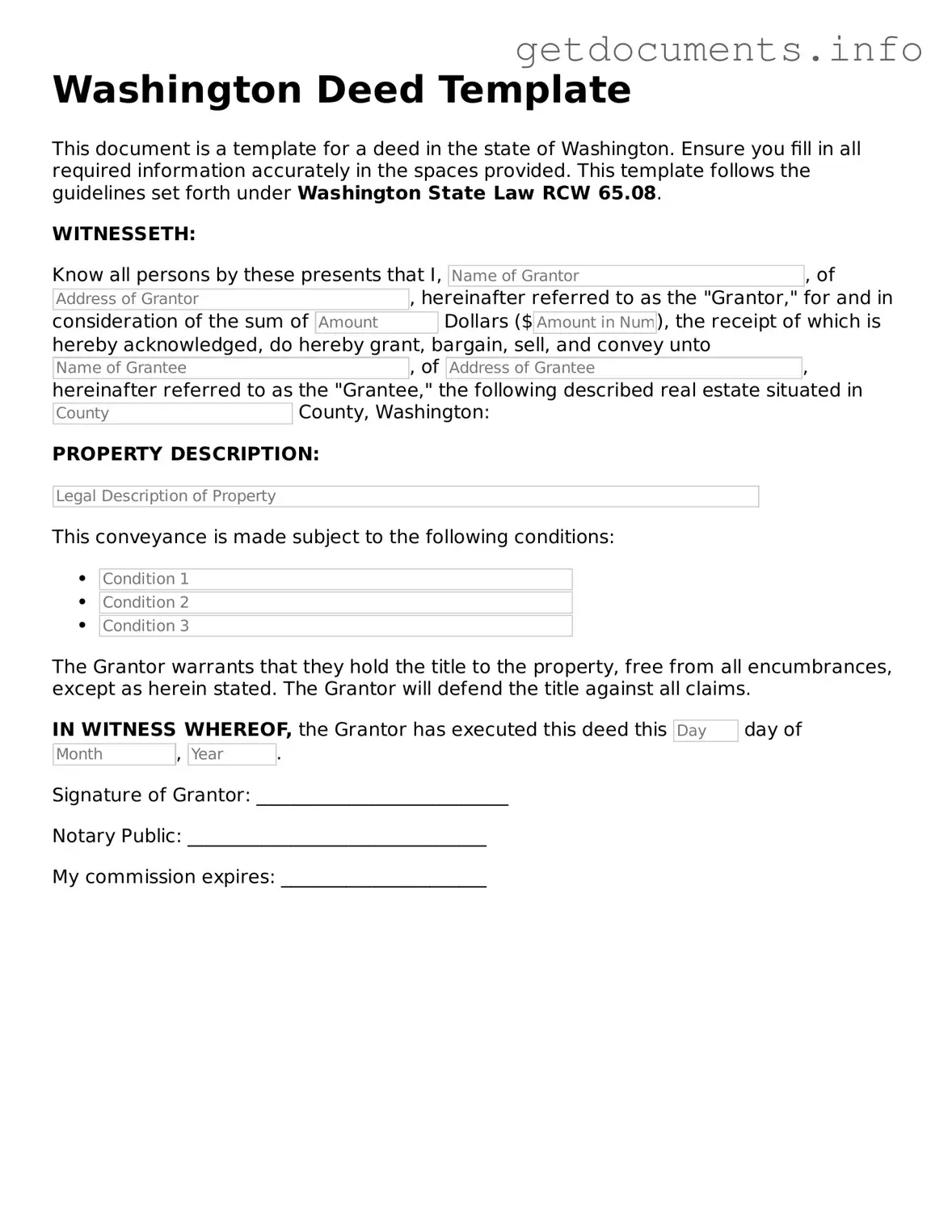Free Deed Template for Washington
A Washington Deed form is a legal document used to transfer ownership of real property from one party to another. This form is essential for ensuring that the transfer is recognized by the state and protects the rights of both the buyer and the seller. To ensure a smooth transaction, it is crucial to fill out the form accurately; click the button below to get started.
Access Deed Editor

Free Deed Template for Washington
Access Deed Editor
Got places to be? Complete the form fast
Fill out Deed online and avoid printing or scanning.
Access Deed Editor
or
⇩ PDF File
